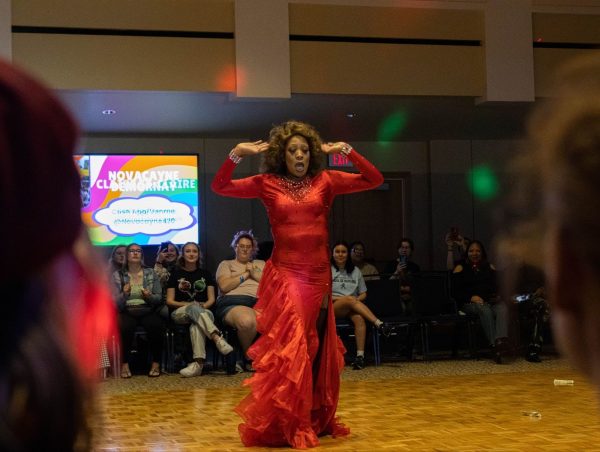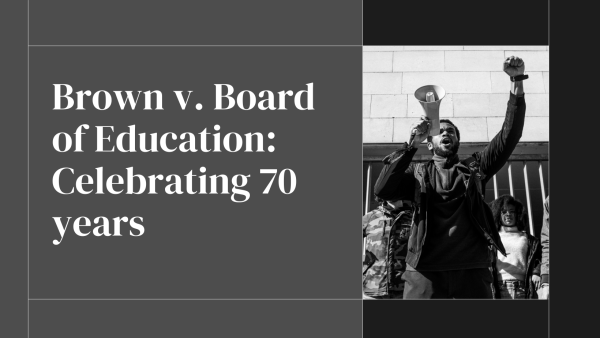Gender Brown Bag discussion touches on the stereotype and weaponization of gender
Political candidates and people should stop stereotyping and weaponizing gender. Jim Schnoebelen and Carson Kay talked about the topic at the Gender Brown Bag.
Gender Brown Bag: The stereotype and weaponization of gender
On Nov. 29, in the Cottonwood room of the Memorial Union, faculty from the communication department hosted a Gender Brown Bag discussion surrounding the midterm elections, the overturning of Roe.v Wade and the weaponization and stereotyping of gender in politics.
Jim Schnoebelen, chair the of communication studies, and Carson Kay, acting chair of communication studies, presented the viral ad campaign of Linda Paulson, the Utah republican senate candidate, rapping as an exhibit to sum up the peculiarity of the midterm elections this year. Moving forward, Schnoebelen and Kay took turns presenting their points regarding gender in politics.
Kay started her part of the presentation by giving an insight into the impact of the overturning of Roe v. Wade right at the height of the midterms, perpetuating the impact to be profound. She described the surrounding conversation to be filled with uncertainty in terms of whether abortion and reproductive health would be a right or a privilege. Kay said that Kansas being the first state to vote on abortion played a huge role in the topic itself and the ad campaigns following it.
Schnoebelen talked about gender expectations and gender adaptiveness in politics and its presentation in advertising campaigns. He said that many of the campaigns tend to stick to the conventional norm of gender while playing to their strengths and minimizing their weaknesses. However, gender adaptiveness has been a bigger part of such ad campaigns in the past few years.
“Women, especially because they are perceived as less credible in things like elective office, especially executive elective office, will intend to demonstrate and hit more masculine, important issues like the economy or executive leadership,” Schnoebelen said. “Men demonstrate a softer side. When they’re running for office, they might try and like have ads or mailers that kind of play up their connection with education or family.”
Moving forward, Kay discussed the topic of gender weaponization and how political ad campaigns and organizations were using various methods to do so.
Kay described weaponization as “the rhetorical act of perpetuating subversive myths about someone or something for the purpose of personal gain.”
Kay also discussed two essential points, the selling of rhetoric of scarcity and the pitting of marginalized groups against each other for a dominant group’s gain as the techniques used by political campaigns or organizations.
Kay pointed out how the mid term campaigns deliberately argued between the rights of cis women and the rights of trans women, both marginalized groups, although one more than the other.
“But this particular advertisement and set of advertisements are really not underscoring the fact that neither has the same rights as cisgender men,” Kay said. “So, it kind of rhetorically puts cisgender women and transgender women against each other, especially for the purpose of getting cisgender men elected to office.”
Kay also notes the emerging pattern of campaign ads where masculinity is taken to the extreme, presenting borderline stalking, gun violence and brutality.
Schnoebelen then points out that in the past few years, candidates have won the highest office by completely rejecting any form of gender adaptiveness and weaponizing gender itself. He also points out the saddening number of women US governors and how they are 10 times more likely to get more abusive comments than their male counterparts.
Accordingly, Schnoebelen talks about the inherent bias that both parties show against women leaders and how stereotypes are still very real and a barrier to them. Regardless, women leaders, as examples, mean something to everybody.
“It’s not just young girls or other women that are running for the office but having those people in the office creates a good sense of identification for young girls and women,” Schnoebelen said. “It also shows other men that have doubts that women can, in fact, serve in high elective office and be successful.”
Schnoebelen concludes the presentation by showing another campaign ad by Louisiana senate candidate, Katie Darling which breaks multiple barriers and hopes that messages as such continue to rise.
Your donation will support the student journalists of Washburn University. Your contribution will allow us to purchase equipment and cover our annual website hosting costs.














